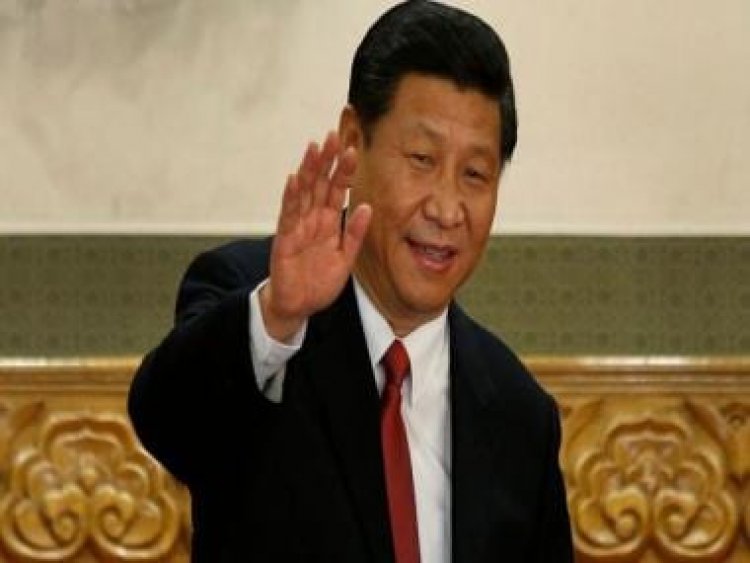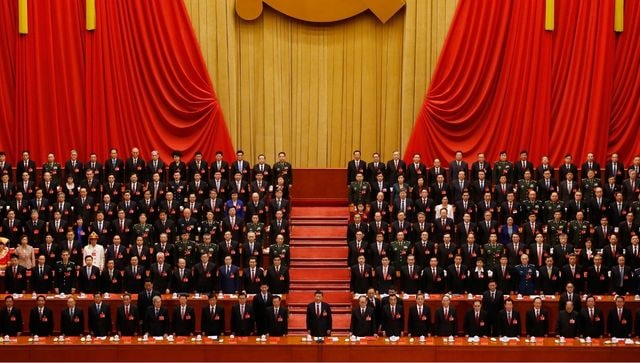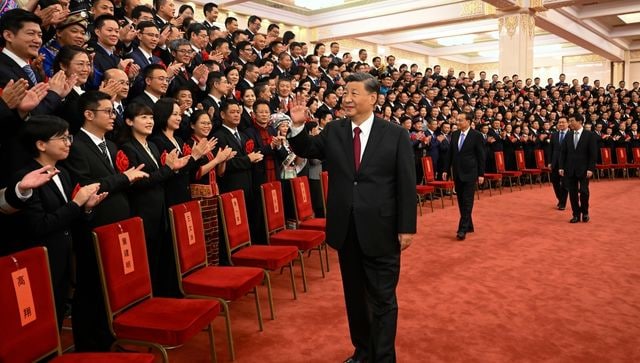China's Communist Party Congress begins: What will Xi Jinping’s third term mean for India?
China's Communist Party Congress begins: What will Xi Jinping’s third term mean for India?

China’s crucial twice-a-decade Community Party conference began on Sunday. At the end of the meeting, Xi Jinping is likely to get a third five-year term. With this, the head of state and commander of the armed forces, Xi will break the decades-old ten-year term rule fixed for the general secretaries of the party, establishing him as arguably the most powerful Chinese politician since Mao Zedong.
What does Xi Jinping’s possible third term mean for India? How does the Chinese Communist Party (CCP) elect its leaders? Why will be Xi’s third term unprecedented? We explain.
Xi and India
Under the leadership of Xi Jinping, China’s ‘aggressive’ international stance is expected to continue, as per Indian Express.
Tensions between India and China ratcheted up after the Galwan Valley clashes at eastern Ladakh in June 2020 which caused the death of 20 Indian soldiers. At least 40 Chinese military personnel were also killed in the military standoff, as per Russian news agency TASS.
Earlier in 2017, Indian and Chinese troops had engaged in a faceoff in the disputed Doklam area for two months.
69-year-old Xi’s ‘confrontational’ approach comes from the belief that it is time ‘for a stronger China’ to occupy a ‘larger role in international affairs and stand up to outside pressure,’ says Associated Press (AP).
ALSO READ: Explained: The significance of disengagement at Hot Springs, Gogra Post in India-China conflict
Tensions may rise
India’s eventual progress on the economic front and ‘strategic patience’ can counter the challenge posed by China, as per Indian Express report.
The report also states that India and China have different ‘fundamental values’, and hence, New Delhi’s interests ‘will be in conflict’ with that of Beijing’s.
Thus, tensions are set to rise in the future for the two countries, Gautam Bambawale, former Indian ambassador to China, Pakistan and Bhutan, writes for Indian Express.
According to The Hindu, with Xi Jinping at the helm, ‘continuity, rather than significant change’ is expected on the bilateral front.
Xi and US
Relations between China and the United States have also reached their lowest level since the diplomatic ties were established in 1979.
China is the second largest economy in the world and wants to replace the US to claim the first position.
In its competition with the US, China needs to show the world that it is the ‘big power or hegemon’ in Asia, as per Indian Express.
“Xi Jinping is certainly a polarizing individual,” Joseph Torigian, a Chinese politics expert at American University in Washington, DC, told AP.
What happens at Congress?
Nearly 2,300 delegates will assemble in Tiananmen Square’s Great Hall of the People in Beijing to select 200 members for the party’s Central Committee and another 170 alternate members, as per BBC.

This central committee will then elect 25 people to the Communist Party’s Politburo.
The Politburo will pick the members of the Politburo Standing Committee.
Currently, this standing committee comprises seven members, including General Secretary Xi Jinping.
As per BBC, the central committee is likely to huddle a day after the main congress ends.
ALSO READ: What is China’s Communist Party Congress and why does it matter?
An ‘unprecedented’ third term for Xi?
Xi’s third term will be a huge shift from what former leader Deng Xiaoping had decided for the party.
Deng had set the unwritten rule for CCP general secretaries who were required to step down after serving two five-year terms. Former general secretaries Jiang Zemin and Hu Jintao had followed this directive, however, Xi is expected to defy this to bag a third term.
Earlier in 2018, Xi had brought in a constitutional reform to do away with term limits on the presidency.
Another five-year term will put Xi in the same league as Mao Zedong, who ruled “practically without challenge” since founding the People’s Republic of China in 1949 to his death in 1976, notes Atlantic Council.

Deng had opposed the one-man rule in China. “It is not good to have an over-concentration of power,” he said in a 1980 speech.
“It hinders the practice of socialist democracy and of the Party’s democratic centralism, impedes the progress of socialist construction, and prevents us from taking full advantage of collective wisdom,” the leader said, as per Atlantic Council.
Alfred Wu, who covered Xi for Chinese state media in Fujian, told AP that he views Xi as a ‘disciple of Mao rebelling against Deng’.
Xi is ‘recentralising’ economic and political decision-making in China, which were decentralised under Deng. Xi’s concentration of power is taking the country back to the Mao era, as per Indian Express.
“China under Xi is moving in a totalitarian direction,” Professor Steve Tsang of London University’s School of Oriental and African Studies (SOAS), told BBC.
“Arguably, Xi’s reluctance to empower a younger successor and moves to break norms of collective leadership have also made China less resilient as the country sails into an increasingly uncertain future,” Ashley Esarey, a political scientist at the University of Alberta, told Reuters.
The world will be keenly watching the decisions taken at the Communist Party’s once-in-a-five-year Congress which will give an insight into how the Asian giant will move forward.
With inputs from agencies
Read all the Latest News, Trending News, Cricket News, Bollywood News,
India News and Entertainment News here. Follow us on Facebook, Twitter and Instagram.
What's Your Reaction?



























































